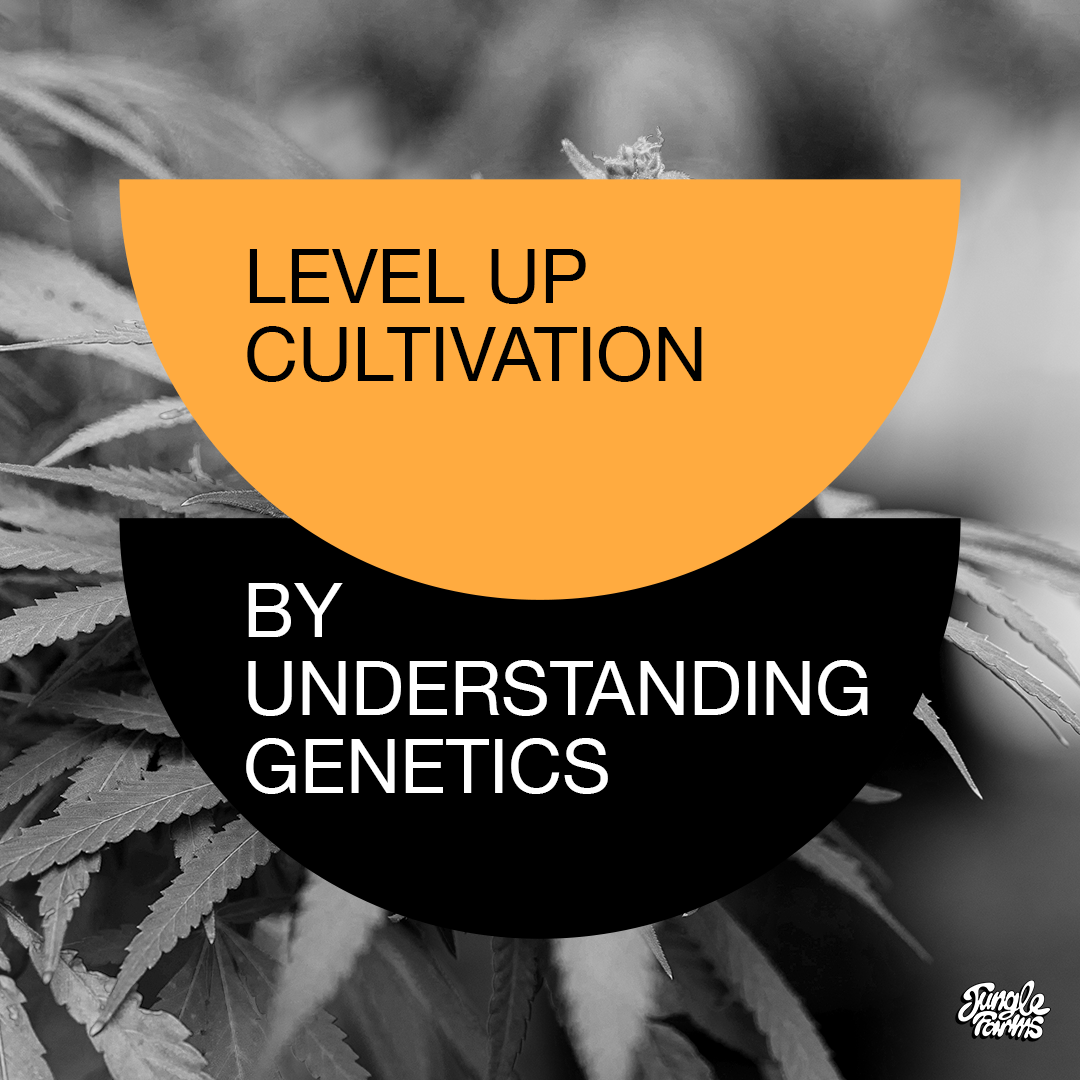In recent years, the legalization of cannabis for medical and recreational purposes has led to an increased interest in understanding the genetics of this plant. In Phuket, Thailand, where the cultivation of cannabis is legal, it is particularly important to understand how genetics can influence the growth and development of cannabis plants. In this article, we will delve into the basics of genetics and explore how genetics affect the potency and other characteristics of cannabis plants. We will also discuss the importance of breeding strategies and modern techniques for optimizing cannabis cultivation in Phuket, Thailand.
Basics of Genetics
To fully understand the role of genetics in cannabis cultivation, it is important to have a basic understanding of genetics. Genetics is the study of genes and heredity, which involves the transfer of genetic information from one generation to the next. At the core of genetics is DNA, or deoxyribonucleic acid, which is the genetic material that contains all of the information needed to build and maintain an organism.
DNA is organized into structures called chromosomes, which are made up of long strands of DNA wrapped around proteins. Genes are segments of DNA that contain the instructions for making specific proteins, which are the building blocks of life. Each gene is located in a specific location on a chromosome, and each chromosome contains many genes.
Genetic variation is the diversity of genetic information within a population. There are two main types of genetic variation: single nucleotide polymorphisms (SNPs) and copy number variations (CNVs). SNPs are variations in a single nucleotide, or DNA building block, while CNVs are variations in the number of copies of a particular gene. Both SNPs and CNVs can have significant effects on the expression of genes and ultimately the characteristics of an organism.
In cannabis cultivation, understanding the basics of genetics is crucial for identifying and selecting desirable traits, such as high potency or disease resistance. By manipulating genetic variation through breeding and other techniques, cannabis cultivators can produce plants with specific characteristics that are optimized for growth in Phuket, Thailand.
Understanding Cannabis Genetics
In recent years, the genetic makeup of cannabis plants has become a topic of great interest for cultivators in Phuket, Thailand. The cannabis genome is quite complex, with a high degree of genetic variation within and between different strains. The cannabis genome is composed of over 800 million base pairs, making it one of the largest plant genomes known to science.
The importance of genetic variation in cannabis plants cannot be overstated. Genetic variation is responsible for the wide range of characteristics found in different cannabis strains, including potency, aroma, and physical appearance. By identifying and selecting desirable genetic traits, cultivators can produce cannabis plants that are optimized for growth in the unique environmental conditions found in Phuket, Thailand.
Cannabis sativa and Cannabis indica are two primary subspecies of cannabis, each with its own unique genetic profile. Sativa strains tend to be taller with narrower leaves and longer flowering times, while indica strains tend to be shorter with broader leaves and shorter flowering times. Hybrids, which are a cross between sativa and indica strains, can exhibit characteristics of both subspecies.
Understanding the genetic differences between these subspecies and hybrids is essential for cultivators in Phuket, Thailand, as it allows them to select strains that are best suited to local environmental conditions and desired characteristics. Through genetic testing and sequencing, cultivators can gain a deeper understanding of the genetics of cannabis plants and use this knowledge to optimize their cultivation practices for maximum yield and potency.
How Genetics Affect Characteristics of Cannabis Plants
Genetics plays a critical role in determining the characteristics of cannabis plants, including their potency, flavor, aroma, and physical appearance. The genetic makeup of a cannabis plant determines the expression of various traits, which are passed down from one generation to the next through the process of inheritance.
One of the primary ways in which genetics affects the characteristics of cannabis plants is through the expression of cannabinoids, such as tetrahydrocannabinol (THC) and cannabidiol (CBD). The genes responsible for producing these cannabinoids are known as biosynthetic genes, and their expression is influenced by a variety of factors, including environmental conditions, growing techniques, and genetic variation.
In addition to cannabinoid production, genetics also plays a role in the expression of terpenes, which are the aromatic compounds that give cannabis strains their distinct flavors and aromas. Terpenes are produced by specialized genes in the cannabis genome, and their expression is influenced by genetic variation and environmental factors such as temperature, humidity, and light intensity.
Physical appearance is another characteristic of cannabis plants that is influenced by genetics. Traits such as plant height, leaf shape, and flower size are all determined by the plant’s genetic makeup. By selecting for desirable physical traits, cultivators can produce cannabis plants with a uniform appearance that is optimized for growth in the unique environmental conditions found in Phuket, Thailand.
Cannabis Breeding Strategies in Thailand
Breeding cannabis plants is a complex process that requires a deep understanding of genetics and plant biology. By selecting for desirable traits and utilizing modern breeding techniques, cultivators can produce cannabis plants with the desired characteristics for medical and recreational purposes.
One of the primary breeding strategies used in cannabis cultivation is hybridization, which involves crossing different strains to produce offspring with desirable traits. Hybridization allows for the combination of desirable genetic traits from different parent plants, resulting in offspring that exhibit a wide range of characteristics.
Another breeding strategy commonly used in cannabis cultivation is backcrossing, which involves crossing a hybrid offspring with one of its parent strains. This strategy is used to reinforce desirable traits from the parent strain while maintaining the hybrid offspring’s desirable characteristics.
Genetic modification is another breeding strategy that is becoming increasingly popular in cannabis cultivation. This involves the use of modern genetic engineering techniques to introduce desirable traits into cannabis plants, such as increased resistance to pests and diseases or enhanced cannabinoid production.
In addition to these breeding strategies, genetic testing and sequencing can be used to identify desirable genetic traits and inform breeding decisions. By understanding the genetic makeup of different strains, cultivators can select for desirable traits and develop new varieties of cannabis that are optimized for growth in the unique environmental conditions found in Phuket, Thailand.
Conclusion
Genetics is a fundamental factor in determining the characteristics and potency of cannabis plants. By understanding the genetic makeup of different strains and utilizing modern breeding techniques, cultivators can produce cannabis plants with desirable traits for medical and recreational purposes.
Genetic analysis and sequencing play a crucial role in identifying desirable genetic traits and informing breeding decisions. By selecting for desirable traits and developing new varieties of cannabis, cultivators can optimize growth in the unique environmental conditions found in Phuket, Thailand.
Furthermore, by understanding the complex relationship between genetics and environmental factors such as temperature, humidity, and light intensity, cultivators can develop cultivation practices that maximize yield and potency while minimizing environmental impact.
As the cannabis industry continues to grow and evolve, advancements in genetic research and breeding techniques will undoubtedly lead to the development of new and exciting cannabis varieties with even more desirable traits. By staying up to date with the latest developments in genetics and cannabis cultivation, cultivators in Phuket, Thailand can remain at the forefront of this rapidly evolving industry.

